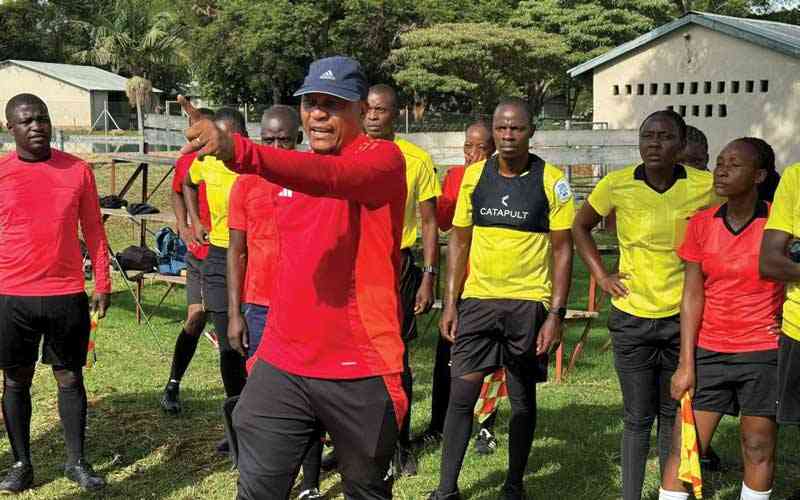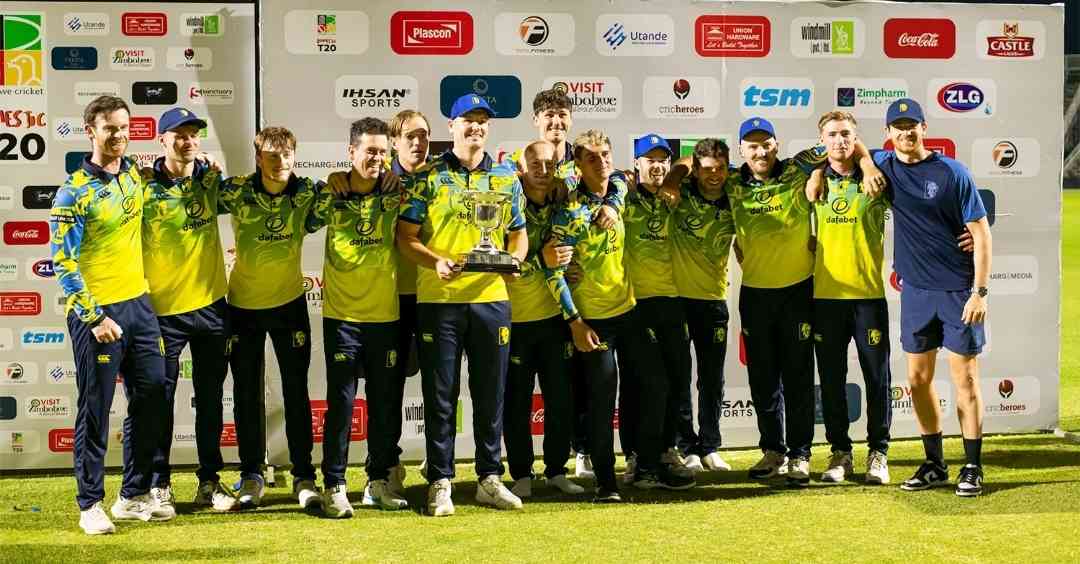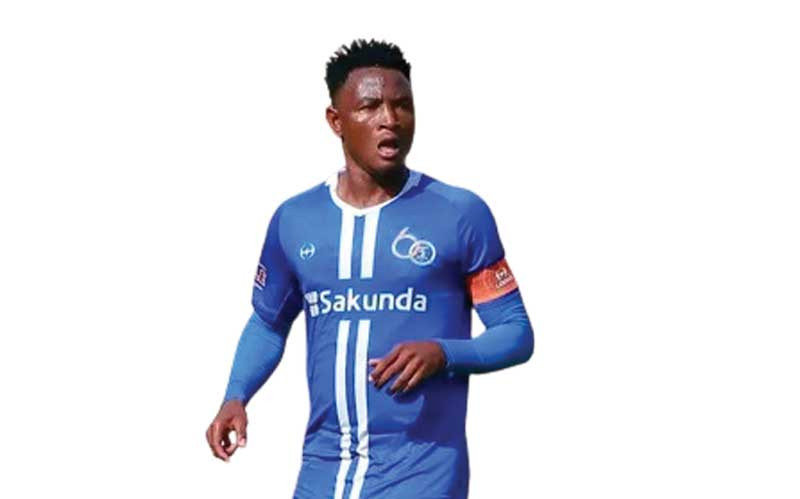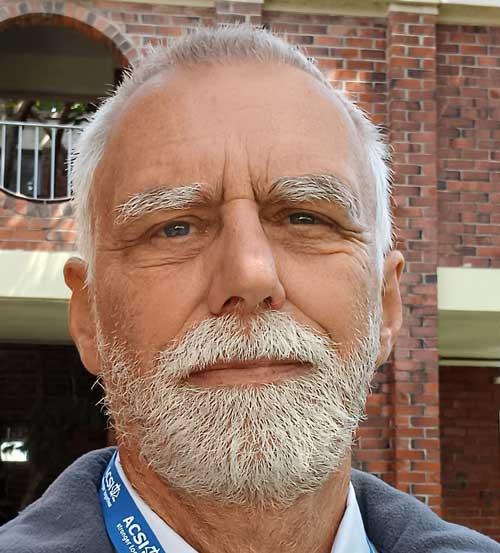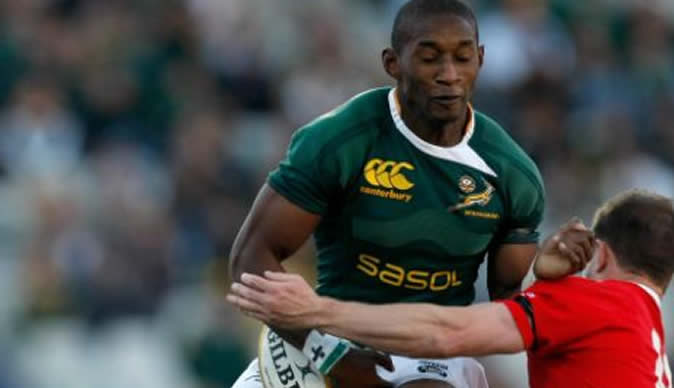
Despite unfolding in front of glaring floodlights, it happened so fast that sportscasters had to rewind it a couple of times just to try and comprehend what their cameras had just captured.
Zimbabwe-born rugby player Tonderai Chavhanga, then playing for South African side the Stormers, had just chased a kick, retrieved the ball and accelerated effortlessly past no less than Joe “Smoking” Rokocoko to score a legendary try.
Tonde, as he is affectionately referred to by rugby followers, had just outpaced Rokocoko, a New Zealand’s All Blacks superstar playing for the Auckland Blues who were the Super 12 Rugby defending champions.
A lifetime ago the first step towards this 2004 sports headline, grabbing moment had begun far away from any cameras when Tonde first picked up the egg-shaped ball at Blakiston Primary School in Harare.
Rugby and athletics records at primary school and subsequently Prince Edward High School would be smashed by the natural speedster, en-route to his 2005 debut for the two-time Rugby World Cup champions, the Springboks.
Here Chavhanga blitzed his way promptly into South African rugby history books with a six try haul against Uruguay.
Having hung up his boots in 2015 after a stint with Super Rugby giants the Sharks, Chavhanga’s exploits at five world class teams continue to inspire the post-millennium generation of Zimbabwean rugby players.
- Chamisa under fire over US$120K donation
- Mavhunga puts DeMbare into Chibuku quarterfinals
- Pension funds bet on Cabora Bassa oilfields
- Councils defy govt fire tender directive
Keep Reading
Our correspondent Nyasha Dhliwayo (ND) caught up with the Zimbabwe-born former Springboks winger Tonderai Chavhanga (TC) as he reminisced about his action-packed journey in rugby.
ND: When did your rugby journey begin?
TC: After watching the 1995 Rugby World Cup I was left inspired not only by South Africa’s victory, but more importantly how President Nelson Mandela used that historic occasion to unite our South African brothers and sisters who had been divided by apartheid and tribal conflict. To me, that moment was when I knew I wanted to play rugby because it was more than just a game, but an agent of change. I was fortunate that the following year, Themba Mliswa and Gerry Maguranyanga introduced rugby to Blakiston Primary School and I remembered picking up the ball and thinking that my journey had just began.
ND: You have scored many breathtaking tries during your career but which particular try is your most memorable? TC: It’s difficult to say which try was the most memorable, but the try that really put me on the map was against the Auckland Blues when I was up against Joe Rokocoko.
ND: Most people don’t know that when you left Zimbabwe to pursue a career in professional rugby, you literally had a suitcase of clothes, your rugby boots and big dreams. Tell us a bit about those initial steps? TC: First of all, I was fortunate to have been coached by the likes of Themba, Gerry, John Falkenberg [ZRU president] and the late Ian Robertson, along with being mentored by Patrick Gumunyu [former Prince Edward School sports director].
I believed that one day I would play alongside the greats of the game, so from a young age I dedicated myself to my craft. This made me decide that I was not going to drink, smoke or do anything that would not propel me towards my goal of playing professional rugby.
When I got my opportunity to go and play and study in South Africa, I applied for my study permit and on the day that my permit was approved I left Prince Edward and with hardly any money, I went to look for a kombi to take me to South Africa.
I remember sleeping on top of a trailer at the border after it had been closed. In Bloemfontein, I arrived not understanding or speaking a word of Afrikaans, but I quickly had to learn because that was the rugby language there. I had to make a lot of sacrifices on my journey to my dreams, but it was all worth it and I am grateful for not giving up because there were moments that had me feeling that way.
ND: A number of equally talented Zimbabwean rugby players from your generation didn’t manage to break into top class rugby. What are some of the things that you did to help you make the jump from high school to professional rugby?
TC: Zimbabwe is a country blessed with talent and there were many talented rugby players before, during and after me. As much as I was dedicated in everything I did from school level right until I finished, I could not credit my success to my doing alone because I know there are many who have been as dedicated and probably even more talented. I, however, believe God had a plan for me and I tried my best to do my part in this plan. Some Zimbabwean people who make it in foreign countries seem to want to disassociate themselves from the country, yet you have always remained fiercely proud of your link to the country of your birth.
ND: What has kept you grounded and in touch with your Zimbabwean roots?
TC: I am who I am and I cannot run from that. I am very proud to be a Zimbabwean and an African son. We have a beautiful country with the most incredible people and if I were a rich man, I would use my money to rebuild our incredible country Zimbabwe.
We have our problems as a nation but what country doesn’t? Let’s do what we can to build each other and build our land.
ND: Which of your different coaches has had the greatest impact on you as a person?
TC: Undoubtedly Jake White [Springboks 2007 Rugby World Cup winning coach]. He has backed me from the time I was just coming out of school to picking me for the South Africa Under-21s to awarding me with the Springbok blazer. He has been a great support to me.
ND: A lot of people think that rugby involves just training and playing 80 minutes, can you tell us more about the work that goes on behind the scenes.
TC: Video analysis is crucial to any team’s preparation as you need to study your own game and the opposition’s game by the numbers. Everything is measured from the amount of sleep you have to the amount of metres you run, including your top speed, moderate speed and jogging. We also do eye strength exercises to help with reflexes and also very importantly, spending time with a mental coach. ND: What made you decide to hang your boots for good and how did you deal with those emotions of realising that your body could no longer do the things it could do when you were at your peak?
TC: My last two years were very difficult because my knees were not coming right, I was living on pain killers and I was even struggling to walk after training. The body had made the decision for me and I merely had to oblige. Unfortunately, professional rugby has an expiration date. While it’s not easy accepting that you are not 19 anymore and that your body cannot simply perform or respond at the level it used to, the quicker you accept this, the better it is for you and those around you.
ND: What do you miss the most about professional sport?
TC: The thrill of playing in front of thousands of spectators, testing myself against the best players in the world and inspiring young guys to believe that it doesn’t matter where you come from or what size you are, it is possible.
ND: Now that you had waved goodbye to the game, what are your plans for the next few years?
TC: I am busy with an animation project about a rugby superhero who uses sport as a vehicle to address societal issues to kids, which inspires them to believe that they can make it in life. My plan is to create animation that will inspire young African kids over the continent, that they too can be world leaders in whatever they put their minds to. I also plan to establish myself in the business world where I am busy working on a few projects. But I soon realised the business world is tougher than a thousand Jonah Lomus running at you!
ND: Zimbabwe seems to be long on rugby passion and possibly talent but short on success in the game. What do you think needs to be done to grow Zimbabwean rugby?
TC: Over the past 10 years we have seen three Zimbabweans playing for the Springboks, one Australian rugby captain and a Scottish player. It clearly shows that we have the talent and if business and government work alongside the Zimbabwe Rugby Union to improve the rugby structures after school, we can have a very competitive international side.


